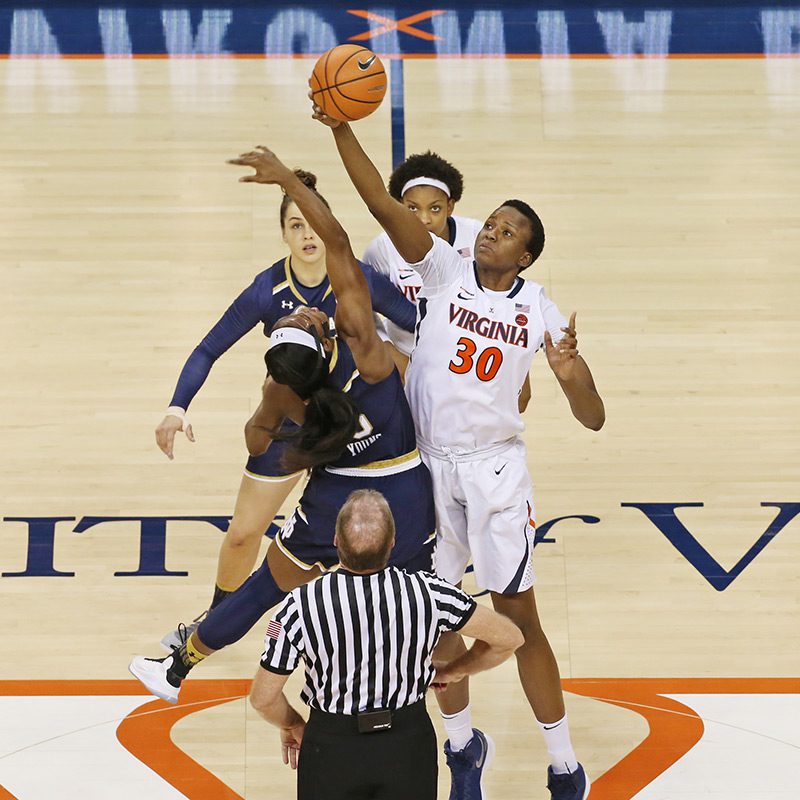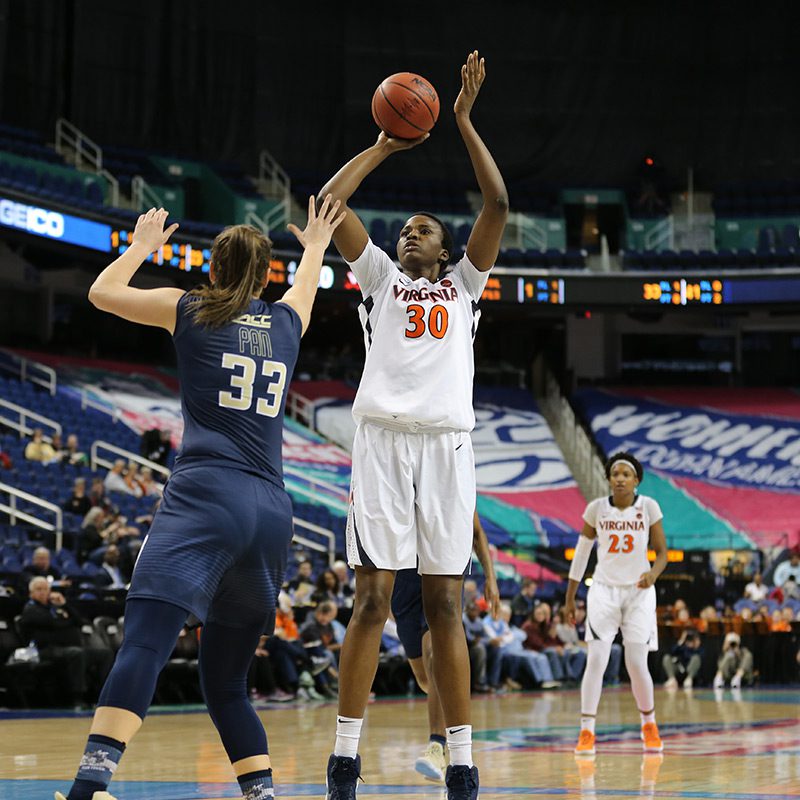Felicia Aiyeotan is a second-year on the women’s basketball team. A native of Lagos, Nigeria, Felicia traveled to UVA to create a better life for herself. When asked about how she came to enjoy and compete at a national level in basketball, she reflected on her realization that basketball was her ticket to that better life. After years of being bullied as a child in Nigeria, Felicia found that the basketball court was the only place she felt accepted, loved and cared for. She explained, “I experienced so much more love than I could have ever imagined.” She reflected about lessons learned while at a basketball camp when she was 12. Mobolaji Akiode ran the camp with a goal to empower young girls and it did just that. Her experience at camp emphasized a sense of acceptance, gave her a sense of newfound hope and helped her discover her worth as a person. She said, “[I discovered] how much people love to be around me not only for my unique height, but also for my personality and how articulate and witty I was.” She remembers this time as a moment that assured her that everything [was] going to be okay. To this day, she continues to feel empowered to enjoy and compete in the game of basketball. She even hopes to play professional basketball and represent team Nigeria in the Olympics one day.

Although basketball served as a light to Felicia, the transition into a student-athlete came with difficulties. Like other student-athletes, Felicia struggled to master her time management skills during her first year. She says, “I knew it would be competitive, demanding and time-consuming, but I never fully understood how challenging it would be to combine both school and basketball and still try to maintain a social life.” Developing structure into her everyday life became critical. “I quickly created a list of things [that needed to be done everyday] and then rearranged that list in an order of importance.” Felicia realized that from an academic standpoint she needed to work ahead on her syllabi and be aware of office hour times and locations. She also realized that her nutrition, rest, recovery and extra gym time needed to take priority. Developing a list of priorities allowed her to become efficient with her time, maintain communication with her family and live a social life-style.

Felicia plans to declare a major in sociology because it teaches her to not make assumptions, to challenge and critique theories, to ask questions and to embrace complexities. It also helps her understand how society works, how gender, status, race, educational background and upbringing all play a role in everyday life, and ultimately, shape who we are as people. Using this knowledge, Felicia hopes to create an after-school program in Lagos to help address academic problems in Nigerian public schools such as deficiencies in English and mathematics. She also aspires to develop a clothing line for women of all sizes, especially tall women. After experiencing personal difficulties finding stylish clothes that properly fit, she is motivated to make this process easier for all women.
When given a change to thank the VAF donors, Felicia said, “Without their donations I would not have the high-quality experience and treatment that I have received while playing as a Division 1 college basketball player in a conference like the ACC. Thank you so much for all your donations because your kind generosity has helped turn a young girl’s dream to a reality.”
Donor contributions to the VAF Annual Fund support student-athletes such as Felicia in many ways including scholarships, the Athletics Academic Affairs program and sport-specific operational budgets.

